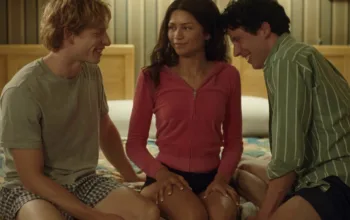Or a way to prevent fights, as an estate lawyer explains.
Roman Aminov meets most of his clients at the most vulnerable time in their lives. Many have recently come face to face with their mortality — through old age or a serious medical diagnosis — and are trying to consolidate their assets and dictate their wishes before it’s too late. Others have just endured a death in the family and are preparing to endure the confused and often prolonged process of inheritance in front of a judge. The overwhelming grimness of probate law might turn off the average lawyer, but Aminov tells me he pursued this career due to his distaste for real estate disputes and tax-code friction, corporate greed and baronial overreach. With inheritance, at least, Aminov knows he’ll be working directly with real human beings.
Aminov has litigated estates for over a decade, and today he’s the owner of his own firm that counts multiple attorneys on staff. He represents both clients who wish to contest what they believe is a fraudulent will or trust, and those seeking to plan out a document that can survive any potential legal meddling. It’s a job that frequently puts Aminov at the center of a familial fracas.
Every family is complicated in its own ways, and Aminov witnesses these candid moments up close. We talked about that, as well as how he navigates clients who have lost their mental faculties, the differences between a will and a trust, and why he believes everyone — even those in their 30s and 40s — should be thinking about their estate plan.
So how did you end up in probate law?
When I was taking trusts and estates courses in law school, I found that, compared to my other classes, probate wasn’t theoretical. This affected people’s day-to-day lives, it wasn’t dealing with abstract tax concepts that affect the three biggest corporations in America. The chance to deal with real people, and real cases, offers a personal touch. That attracted me.
When I think about something like a will, or any other inheritance paperwork, it seems pretty straightforward. “Okay, we just follow the instructions left by the deceased.” But clearly, that’s not the case. What are the typical issues that pop up that force people to go to court?
I think the first assumption is the idea that if you have a will, then your next of kin shouldn’t have to consent to anything. “My will is my will, and the judge will accept it.”
The problem is that your next of kin — spouse, kids, parents — need to be notified if you have a will or not. This paper comes along, reshuffles how the endowment is distributed, and they have to sign off on that plan. That shocks people. When someone calls me for estate planning, and they tell me they want to leave everything to one of their kids, I tell them, “Okay, how many kids do you have?” They say, “What does it matter? I have a few that I haven’t spoken to in 30 years.” I say that the kid that you’re leaving everything to is going to have to locate those other kids and get their consent to the will. If not, they’ll have the opportunity to fight the will.
I imagine you have to deal with a lot of grieving families, as well as some pretty tense acrimony between different ends of a bloodline. That must be a little more emotional than, say, zoning law.
We get people sobbing, we get people bewildered, all sorts of emotions that are natural and normal. I start with that. I acknowledge that this death is recent, it’s hurtful, and it’s personal. I’m not trained in psychology, but my approach is to say, “This is going to take some time, with many small steps along the way. Follow the steps, little by little, file the forms, contact the banks, and we’ll get through this.” There is a light at the end of the tunnel. How many times do people go through the probate process in their life? Usually once or twice, when their mom or dad passes. How do they know what to expect? From a legal perspective, we take that to heart.
Estate planning is tougher for me. I had a gentleman call me today with pancreatic cancer. My wife’s grandfather died of pancreatic cancer. You get clients who know that they’re terminal, and I try to give them peace of mind. “You’re coming in here to make sure your children have a smooth transition, so they can remember and honor you without having to deal with the courts.” Hopefully I leave them with that comfort.
How do you deal with clients who have lost a degree of mental capacity?
That’s a big deal. If someone isn’t able to tell me the dates, the president, or their assets — which has happened plenty of times — I’ll have to turn them down. I had someone come in all the way from Florida who thought we were in the Truman era, it was terrible, and I said I couldn’t do anything. If it’s borderline, you try to find a lucid moment. Do they really know what they’re doing? Do they know why they’re doing it? I try to ask them trick questions and see if they’re able to say no to things. Sometimes I’ll bring in a doctor to confirm capacity, and other times I look to see if anything is likely to be contested, because I want to be extra careful.
We try to educate people that you shouldn’t wait until you’re 92 to plan your estate. Get it done in your 30s, 40s, and 50s. You don’t want to do it when it’s too late.
Tell me more about that. Do you think people in general need to think more about their estate when they’re young? Can these issues sneak up on you more than you might think?
It’s probably more important to think about it in your 30s and 40s than in your 70s. Assuming you have minor children, your assets need to be managed by somebody for the benefit of your kids. Otherwise, your inheritance is essentially locked up by the court, and everything is released to them when they turn 18. That’s different from a scenario where you’re providing when they get the money, who has access to it, and what they can spend it on. When your kids are older, and you plan on splitting everything even between them, they’ll get the money anyway regardless if you have a will or not. So, ironically, it’s more pertinent to get everything organized while you’re still young.
Do you witness some ugly drama in this line of work? Are you ever caught between different factions on the family tree?
Any time you mix family, hurt feelings, and money, it’s a recipe for disaster. I’ve been involved in plenty of those, on all sides. It makes me appreciate functional families a little bit more. I see people who say, “I want everything to go to my kids,” or, “I want everything to go to this one kid,” and everyone else is okay with that. It makes me want to ask them, “What did you do right?”
I’ll give you a tangential story about that. I had a case where a client called me and said, “Hey Roman, I don’t know what to do. My uncle just died. I was given something to sign because I’m the next of kin. It looks like a will, and he gave everything to my cousin. He disinherited me and my sister. I’m going to sign it, but I want a lawyer to look at it.” I looked at it and there were some discrepancies. I start investigating, and we depose the attorney draftsperson. We learn that this draftsperson never met the uncle, nor had he ever spoken to him. Had the law not protected these people by letting them see this document and question this document, someone would’ve gotten away with fraud.
Other times it gets nasty and litigious. I had a client hire me six or seven years ago to litigate over mom’s candelabra. She thought she should’ve gotten it, not her brother. I had no idea I was getting involved in a candelabra case. It illustrates that sometimes people don’t care as much about the money as they care about hurt egos and childhood trauma.
Author: Luke Winkie
Read More



